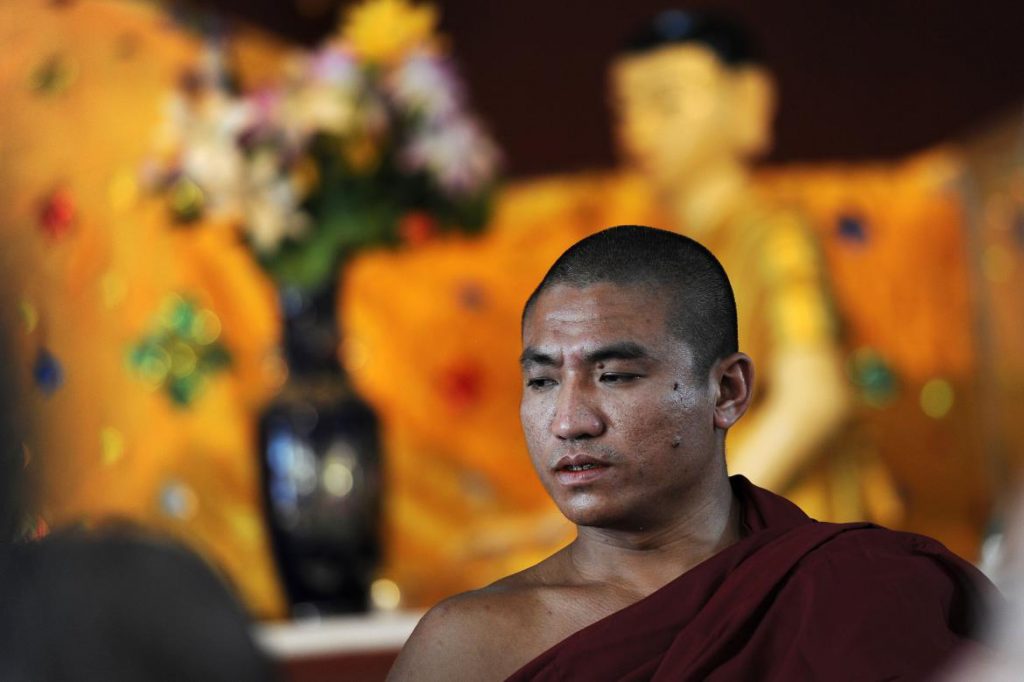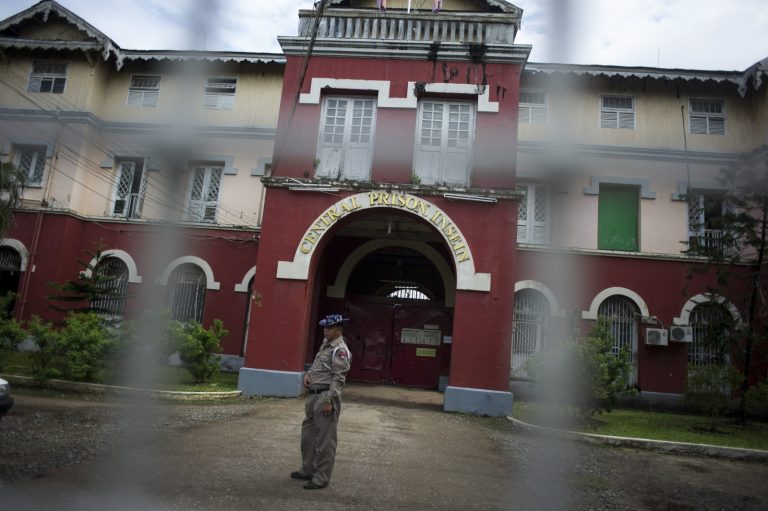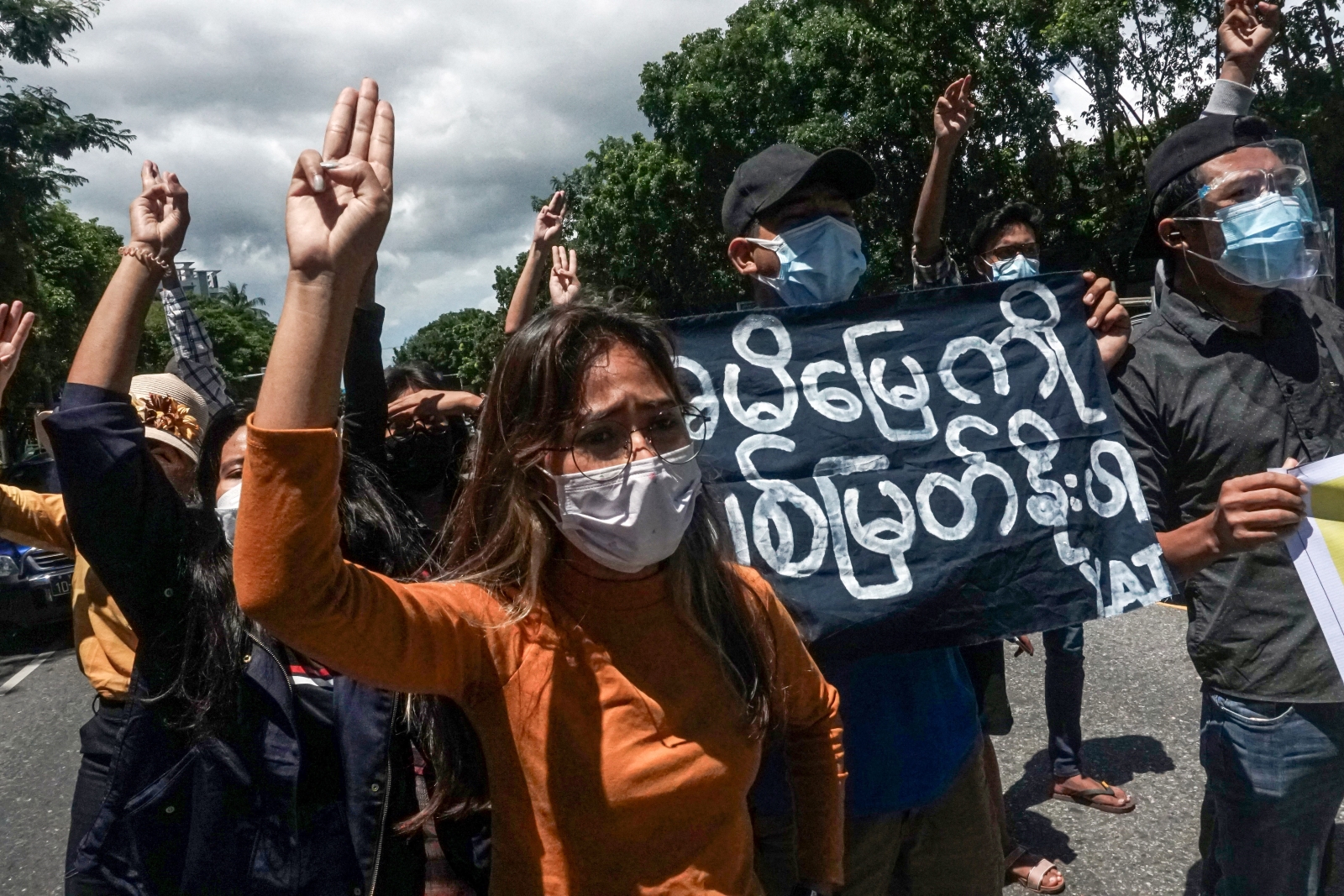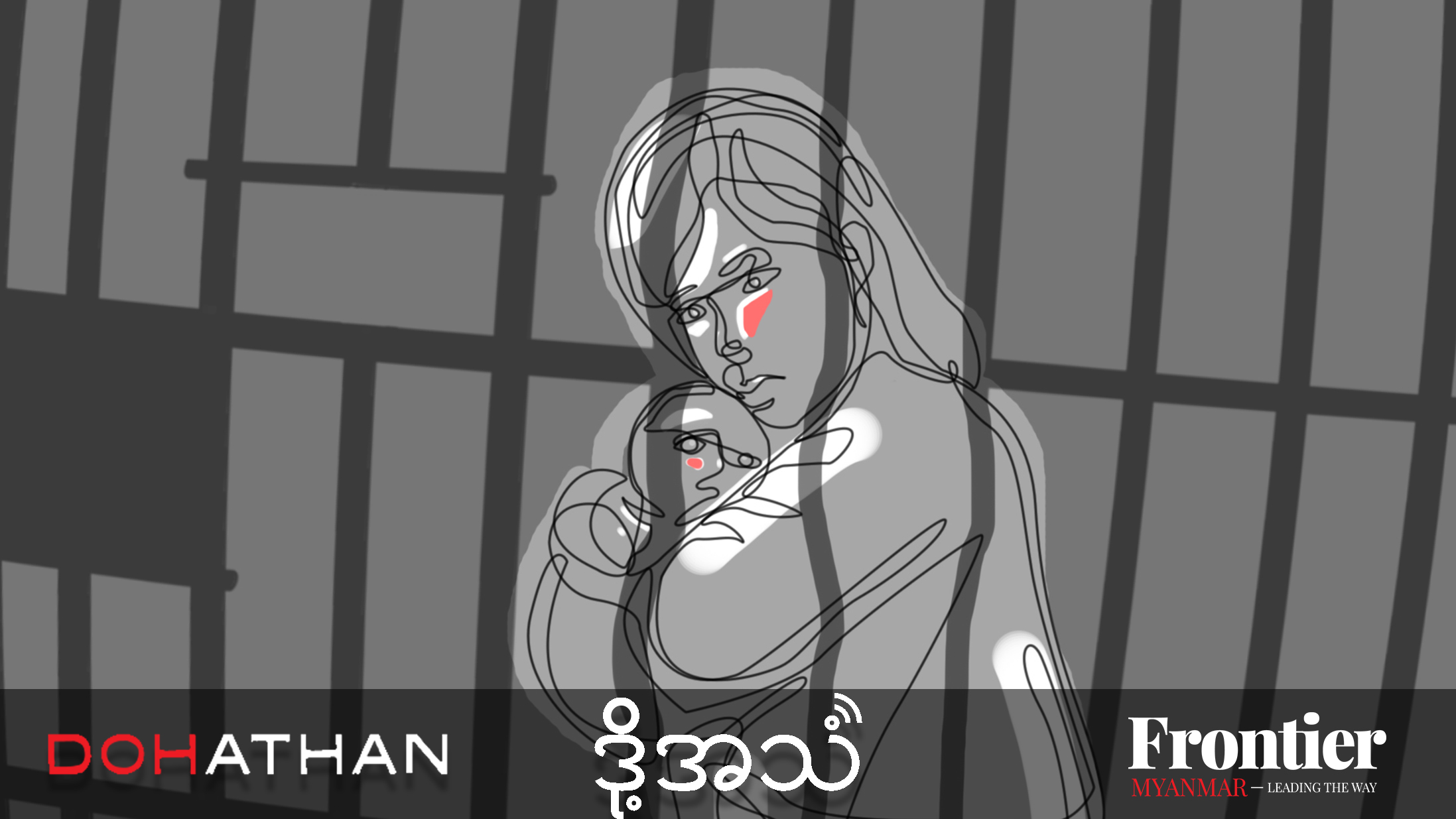By SEAN GLEESON | FRONTIER
YANGON — Mandalay’s Maha Aung Myay Township Court on Tuesday afternoon sentenced U Nyi Nyi Lwin, better known by his ordination name U Gambira, to six months’ imprisonment for violation of the Immigration Act.
The former monk, one of the leaders of the 2007 popular protests known internationally as the Saffron Revolution, was arrested on January 21 and accused of violating Section 13.1 of the Act, prohibiting individuals from remaining in Myanmar after the expiry of their legal entry.
Travelling through the Tachileik border crossing on January 16, Gambira’s entrance into the country was approved by Myanmar immigration officers and he was allowed to travel on to Mandalay without incident, before a large contingent of police officers arrested him five days later.
Though residing in Thailand for several years after his release from prison in 2012, Gambira never relinquished his claim to Myanmar citizenship. His Australian wife, Marie Siochana, told Frontier last month that her husband still possessed valid identification documents that proved he was a lawful citizen of Myanmar.
Support more independent journalism like this. Sign up to be a Frontier member.
“It’s a vindictive verdict and an unacceptably harsh sentence,” Human Rights Watch senior researcher David Mathieson told Frontier on Tuesday afternoon. “President Htin Kyaw should overturn the verdict and have Gambira released immediately, as he and Daw Aung San Suu Kyi pledged earlier this month.”
Earlier in April, Htin Kyaw granted two separate presidential pardons to more than 100 prisoners of conscience then behind bars in prisons across Myanmar. Although Gambira was not among those released, dozens of detainees awaiting trial, including students arrested in the aftermath of last year’s National Education Law protest in Letpadan, were among those freed by the presidential order.
Vani Sathisan, an international legal advisor for the International Commission of Jurists, said the Immigration Act was intended for use against foreign nationals and had been used in an “arbitrary and subjective manner” in order to prosecute Gambira.
“Gambira is yet another victim to a judiciary that is unable to adjudicate politically sensitive cases competently and impartially,” she told Frontier.
Gambira is widely known to suffer from mental and physical health issues as a result of his detention in the wake of the Saffron Revolution crackdown. Numerous bail requests by defence counsel Robert Sann Aung were denied by the township court. Ms Siochana, who was accompanying Gambira during his visit to Mandalay, was also twice prevented from testifying by the presiding judge.
The accused had faced a maximum five-year prison sentence under the Act.







